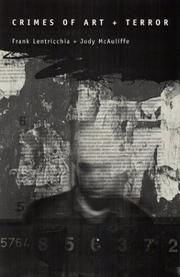| Listing 1 - 3 of 3 |
Sort by
|
Book
ISBN: 150361073X 9781503610736 9781503610040 1503610047 Year: 2020 Publisher: Stanford, California : Stanford University Press,
Abstract | Keywords | Export | Availability | Bookmark
 Loading...
Loading...Choose an application
- Reference Manager
- EndNote
- RefWorks (Direct export to RefWorks)
How can Romantic poetry, motivated by the poet's intense yearning to impart his thoughts and feelings, be so often difficult and the cause of readerly misunderstanding? How did it come to be that a poet can compose a verbal artwork, carefully and lovingly put together, and send it out into the world at the same time that he is adopting a stance against communication? This book addresses these questions by showing that the period's writers were responding to the beginnings of our networked world of rampant mediated communication. The Connected Condition reveals that major Romantic poets shared a great attraction and skepticism toward the dream of perfectible, efficient connectivity that has driven the modern culture of communication.
English poetry --- Communication --- Romanticism --- History and criticism. --- History --- British Romanticism. --- John Keats. --- Percy Shelley. --- Samuel Taylor Coleridge. --- William Wordsworth. --- communication. --- infrastructure. --- literature. --- media. --- poetry.
Book
ISBN: 1800851774 1800857225 9781800857223 1786941333 9781786941336 Year: 2018 Publisher: Liverpool : Liverpool University Press,
Abstract | Keywords | Export | Availability | Bookmark
 Loading...
Loading...Choose an application
- Reference Manager
- EndNote
- RefWorks (Direct export to RefWorks)
This text considers William Wordsworth's use of iconography in his long poem The Excursion (1814). Through this iconographical approach, it steers a middle course between The Excursion's two very different interpretative traditions, the one focusing upon the poem's abstraction, the other upon its touristic realism. The author explores Wordsworth's iconography in The Excursion by tracing cultural and political allusions and correspondences in an abundance of post-1789 and earlier verbal and pictorial sources, as well as in Wordsworth's own prose and poetry, especially The Prelude. Particular attention is paid to the complex ways in which The Excursion's iconographical images contribute to - and also impose limitations upon - the overarching preoccupations of Wordsworth's writings: the themes of paradise lost and paradise regained in the post-revolutionary context.
Allusions in literature. --- Symbolism in literature. --- English poetry --- Romanticism --- Imagery (Psychology) in literature. --- History and criticism. --- Wordsworth, William, --- Criticism and interpretation. --- William Wordsworth --- Romantic poetry --- landscape imagery --- political iconography --- French Revolution

ISBN: 0226472051 9786611125851 1281125857 0226472086 9780226472089 9780226472058 9781281125859 661112585X Year: 2003 Publisher: Chicago : University of Chicago Press,
Abstract | Keywords | Export | Availability | Bookmark
 Loading...
Loading...Choose an application
- Reference Manager
- EndNote
- RefWorks (Direct export to RefWorks)
Do killers, artists, and terrorists need one another? In Crimes of Art and Terror, Frank Lentricchia and Jody McAuliffe explore the disturbing adjacency of literary creativity to violence and even political terror. Lentricchia and McAuliffe begin by anchoring their penetrating discussions in the events of 9/11 and the scandal provoked by composer Karlheinz Stockhausen's reference to the destruction of the World Trade Center as a great work of art, and they go on to show how political extremism and avant-garde artistic movements have fed upon each other for at least two centuries. Crimes of Art and Terror reveals how the desire beneath many romantic literary visions is that of a terrifying awakening that would undo the West's economic and cultural order. This is also the desire, of course, of what is called terrorism. As the authority of writers and artists recedes, it is criminals and terrorists, Lentricchia and McAuliffe suggest, who inherit this romantic, destructive tradition. Moving freely between the realms of high and popular culture, and fictional and actual criminals, the authors describe a web of impulses that catches an unnerving spirit. Lentricchia and McAuliffe's unorthodox approach pairs Dostoevsky's Crime and Punishment with Martin Scorsese's King of Comedy and connects the real-life Unabomber to the surrealist Joseph Cornell and to the hero of Bret Easton Ellis's bestselling novel American Psycho. They evoke a desperate culture of art through thematic dialogues among authors and filmmakers as varied as Don DeLillo, Joseph Conrad, Francis Ford Coppola, Jean Genet, Frederick Douglass, Hermann Melville, and J. M. Synge, among others. And they conclude provocatively with an imagined conversation between Heinrich von Kleist and Mohamed Atta. The result is a brilliant and unflinching reckoning with the perilous proximity of the impulse to create transgressive art and the impulse to commit violence.
82-312.9 --- 82.09 --- Fantastische literatuur --- Literaire kritiek --- Avant-garde (Aesthetics) --- Literature, Experimental --- Literature, Modern --- History and criticism. --- Avant-garde (Aesthetics). --- Literature, Experimental. --- Literature, Experimental - History and criticism. --- Literature, Modern - 19th century - History and criticism. --- Literature, Modern - 20th century - History and criticism. --- Literature, Modern. --- Literature - General --- Languages & Literatures --- History and criticism --- 82.09 Literaire kritiek --- 82-312.9 Fantastische literatuur --- Aesthetics --- Modernism (Art) --- literature, literary studies, art, artwork, terror, creativity, violence, violent, political extremism, cultural study, politics, criminals, terrorism, terrorists, fear, j m synge, hermann melville, frederick douglass, jean genet, francis ford coppola, joseph conrad, don delillo, aesthetics, william wordsworth, bret easton ellis, martin scorsese, fyodor dostoevsky, john cassavetes, thomas mann, social order.
| Listing 1 - 3 of 3 |
Sort by
|

 Search
Search Feedback
Feedback About
About Help
Help News
News